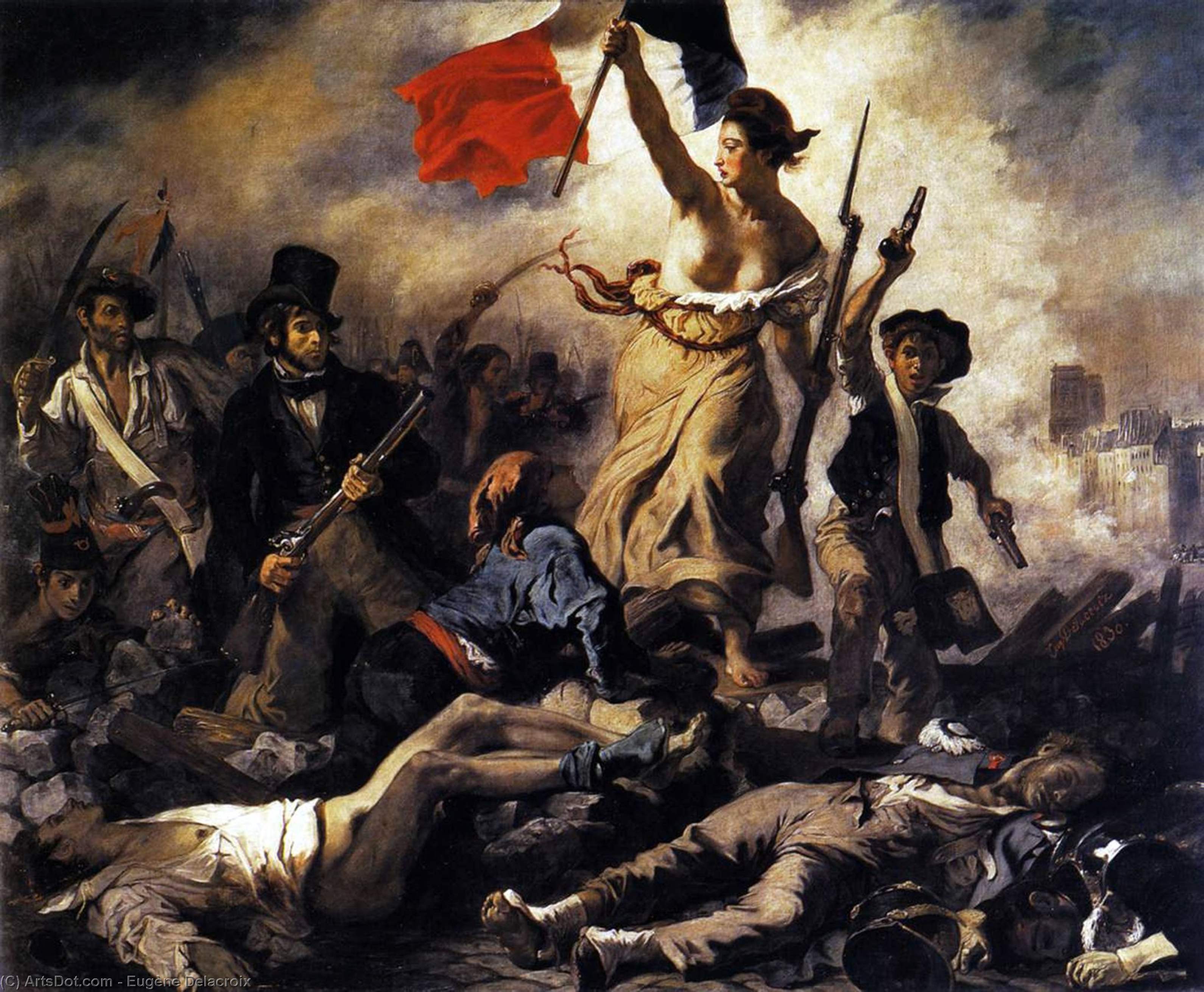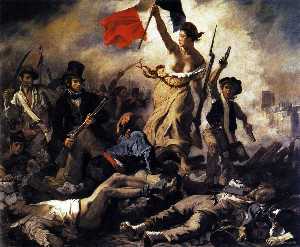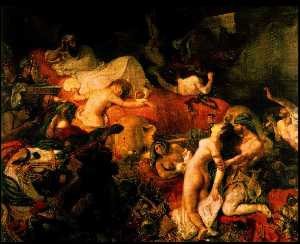Artist: Eugène Delacroix
Date: 1831
Size: 260 x 325 cm
Museum: Musée du Louvre (Paris, France)
Technique: Oil On Canvas
Liberty Leading the People is a painting by Eugène Delacroix commemorating the July Revolution of 1830, which toppled Charles X of France. A woman personifying Liberty leads the people forward over the bodies of the fallen, holding the tricolore flag of the French Revolution in one hand and brandishing a bayonetted musket with the other. Delacroix depicted Liberty, as both an allegorical goddess-figure and a robust woman of the people, an approach that contemporary critics denounced as "ignoble". The mound of corpses acts as a kind of pedestal from which Liberty strides, barefoot and bare-breasted, out of the canvas and into the space of the viewer. The Phrygian cap she wears had come to symbolize liberty during the first French Revolution, of 1789-94. The painting has been seen as a marker to the end of the Age of Enlightenment, as many scholars see the end of the French Revolution as the start of the romantic era.
Artist |
|
|---|---|
Download |
|
Permissions |
Free for non commercial use. See below. |
Eugène Delacroix – Most viewed artworks
|
This image (or other media file) is in the public domain because its copyright has expired. However - you may not use this image for commercial purposes and you may not alter the image or remove the watermark. This applies to the United States, Canada, the European Union and those countries with a copyright term of life of the author plus 70 years.
|















 Note that a few countries have copyright terms longer than 70 years: Mexico has 100 years, Colombia has 80 years, and Guatemala and Samoa have 75 years. This image may
not be in the public domain in these countries, which moreover do not implement the
Note that a few countries have copyright terms longer than 70 years: Mexico has 100 years, Colombia has 80 years, and Guatemala and Samoa have 75 years. This image may
not be in the public domain in these countries, which moreover do not implement the